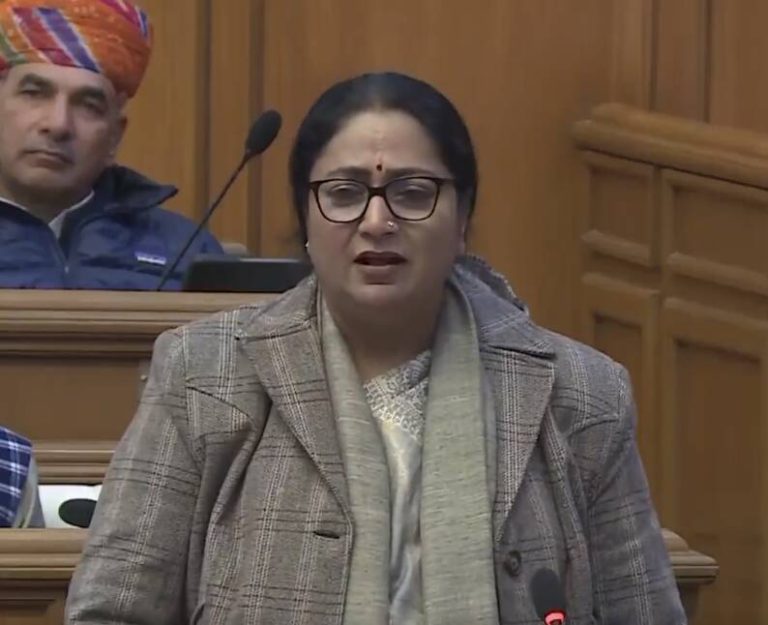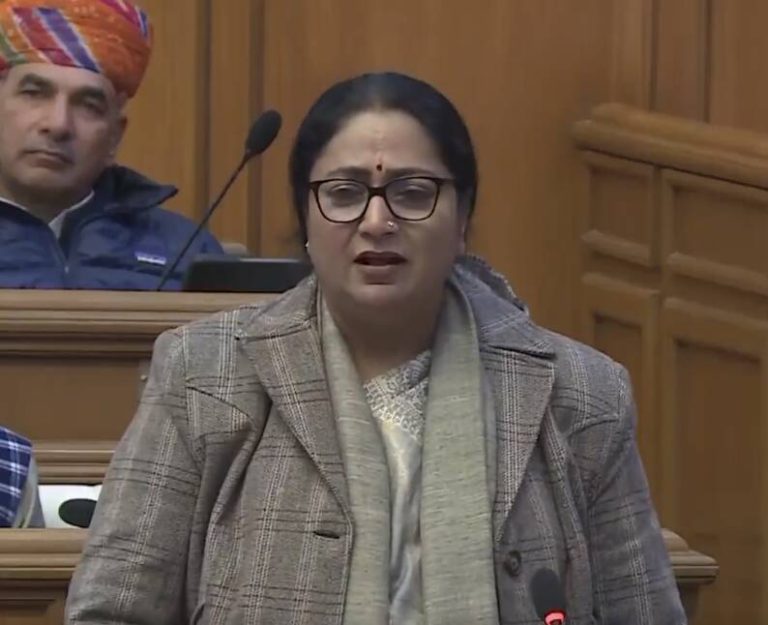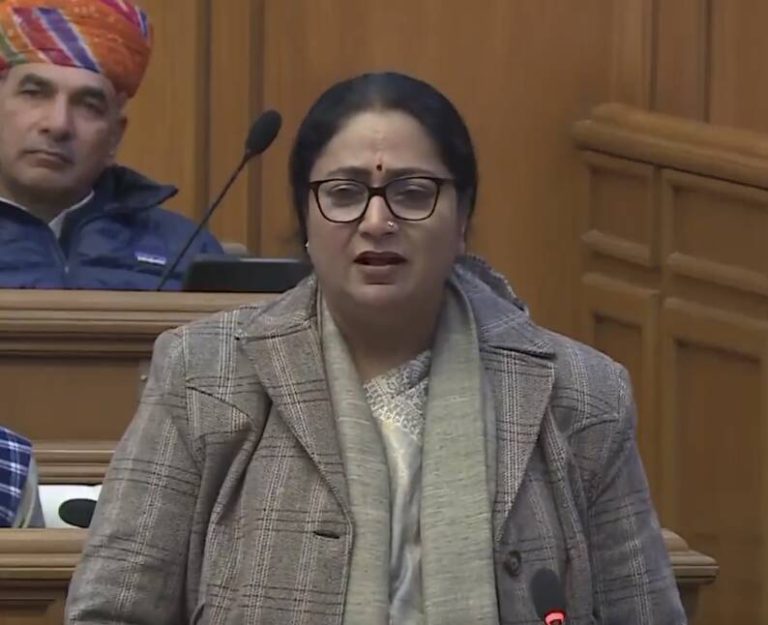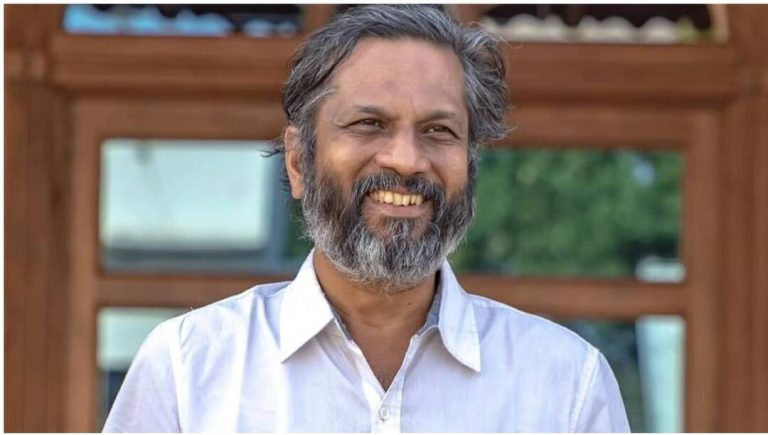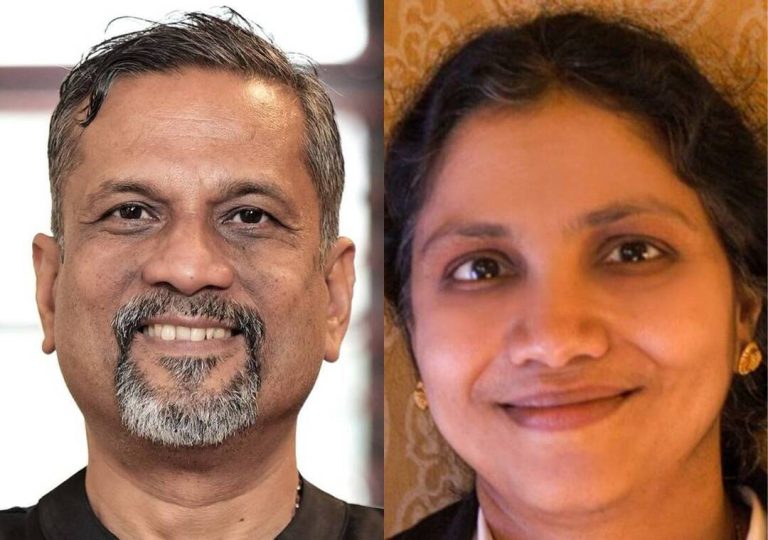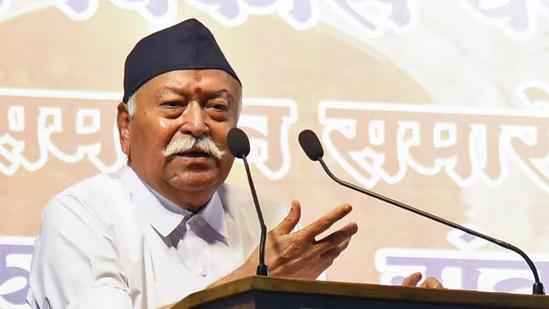
Muslims & Christians are also Hindus if they follow Indian culture: RSS chief Bhagwat
In a recent statement, Rashtriya Swayamsevak Sangh (RSS) chief Mohan Bhagwat has sparked a new debate by redefining the term “Hindu”. According to Bhagwat, anyone who takes pride in Bharat and follows Indian culture is a Hindu, regardless of their religious affiliations. This statement has far-reaching implications and challenges the traditional understanding of Hinduism as a religion.
Bhagwat’s statement was made during a recent event, where he emphasized that the term “Hindu” is not limited to a particular religion or community. He said, “If Muslims and Christians, even without giving up their worship, customs and traditions, worship this country, follow Indian culture…then they are Hindus.” This statement suggests that Bhagwat is attempting to broaden the definition of Hinduism to include people of all faiths who identify with Indian culture and civilization.
The RSS chief’s statement has been seen as an attempt to promote a sense of unity and inclusivity among people of different faiths in India. By defining Hinduism in cultural terms rather than religious terms, Bhagwat is attempting to create a sense of shared identity among Indians, regardless of their religious affiliations. This approach is in line with the RSS’s vision of a “Hindu Rashtra” (Hindu nation), which emphasizes the importance of Indian culture and civilization over religious differences.
However, Bhagwat’s statement has also been criticized by some as an attempt to co-opt minority communities into the Hindu fold. Some critics argue that this approach ignores the distinct cultural and religious identities of minority communities and attempts to assimilate them into the dominant Hindu culture. Others have pointed out that this approach is inconsistent with the traditional understanding of Hinduism as a religion, which has its own set of beliefs, practices, and rituals.
Despite these criticisms, Bhagwat’s statement reflects a broader trend in Indian society, where there is a growing emphasis on promoting Indian culture and civilization as a unifying force. Many Indians, regardless of their religious affiliations, take pride in their cultural heritage and identify with Indian values such as tolerance, diversity, and pluralism. By defining Hinduism in cultural terms, Bhagwat is attempting to tap into this sense of shared identity and promote a sense of unity among Indians.
Bhagwat also emphasized that India does not need an official label to be a “Hindu Rashtra” because its civilization already reflects it. He argued that India’s diverse culture, traditions, and values are already reflective of a Hindu Rashtra, and that there is no need for a formal declaration or label. This approach is consistent with the RSS’s vision of a Hindu Rashtra, which emphasizes the importance of promoting Indian culture and civilization over religious differences.
The implications of Bhagwat’s statement are far-reaching and have significant implications for Indian society and politics. If accepted, this definition of Hinduism could help to promote a sense of unity and inclusivity among people of different faiths in India. It could also help to challenge traditional notions of Hinduism as a religion and promote a more nuanced understanding of Indian culture and civilization.
However, it is also important to recognize the potential risks and challenges associated with this approach. By defining Hinduism in cultural terms, there is a risk of ignoring the distinct cultural and religious identities of minority communities and attempting to assimilate them into the dominant Hindu culture. This approach could also be seen as an attempt to promote a form of cultural nationalism, which could be exclusionary and divisive.
In conclusion, RSS chief Mohan Bhagwat’s statement that Muslims and Christians are also Hindus if they follow Indian culture reflects a broader trend in Indian society, where there is a growing emphasis on promoting Indian culture and civilization as a unifying force. While this approach has the potential to promote unity and inclusivity, it also raises important questions about the nature of Hinduism and the role of minority communities in Indian society. As India continues to grapple with the challenges of diversity and pluralism, it is essential to engage in a nuanced and informed discussion about the meaning and implications of Hinduism in the modern era.
